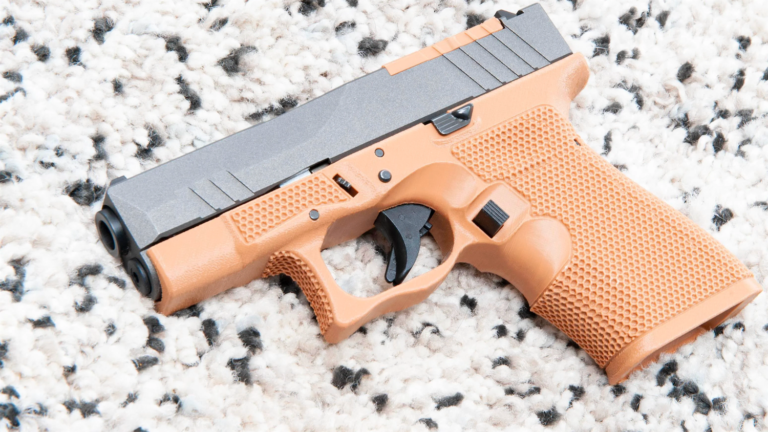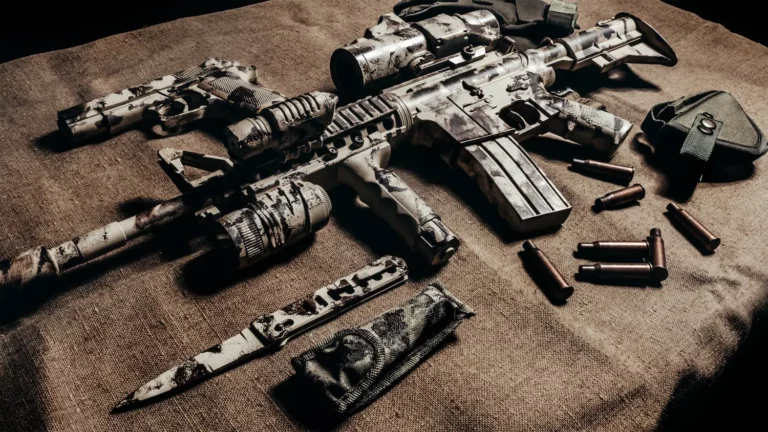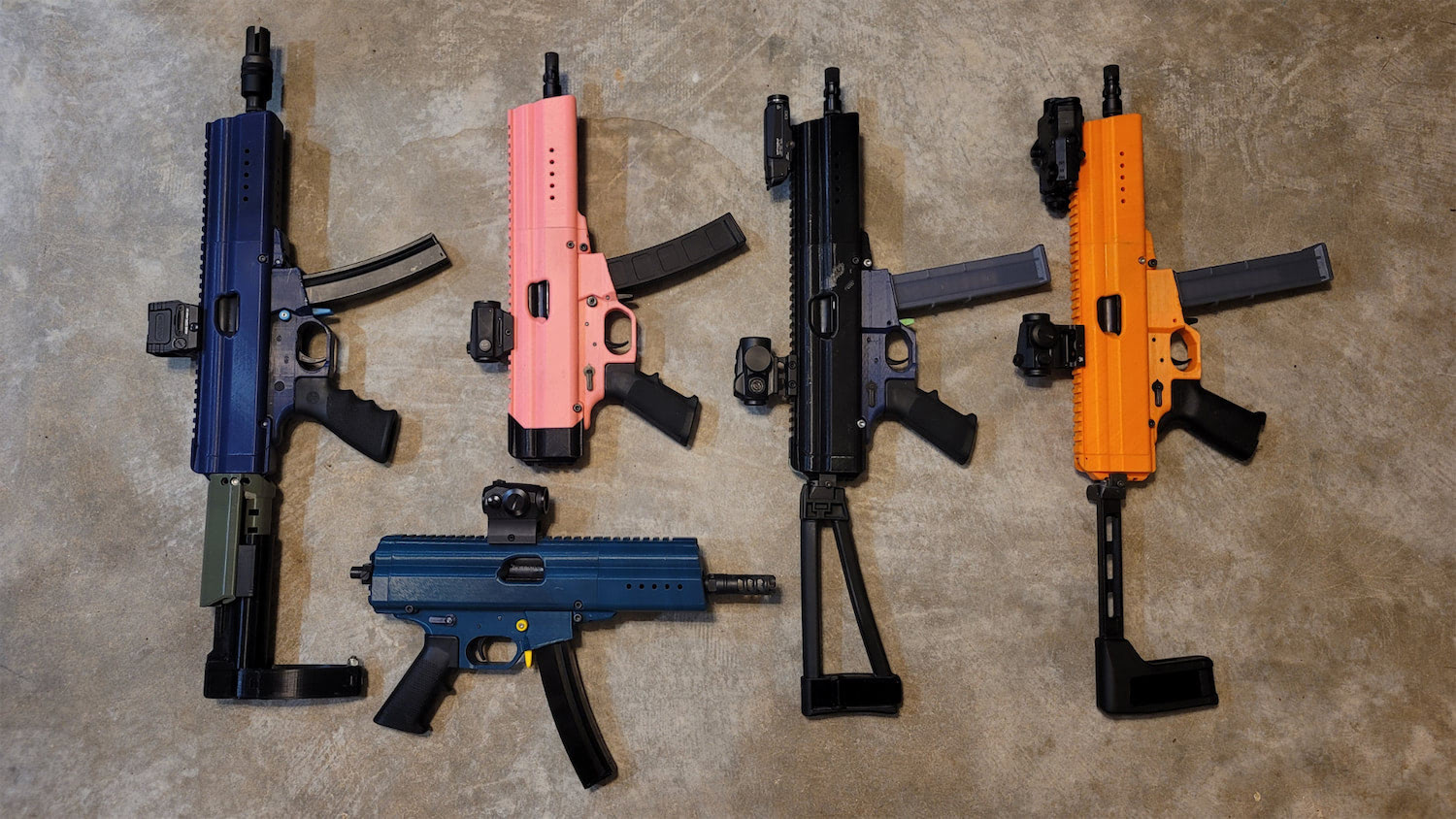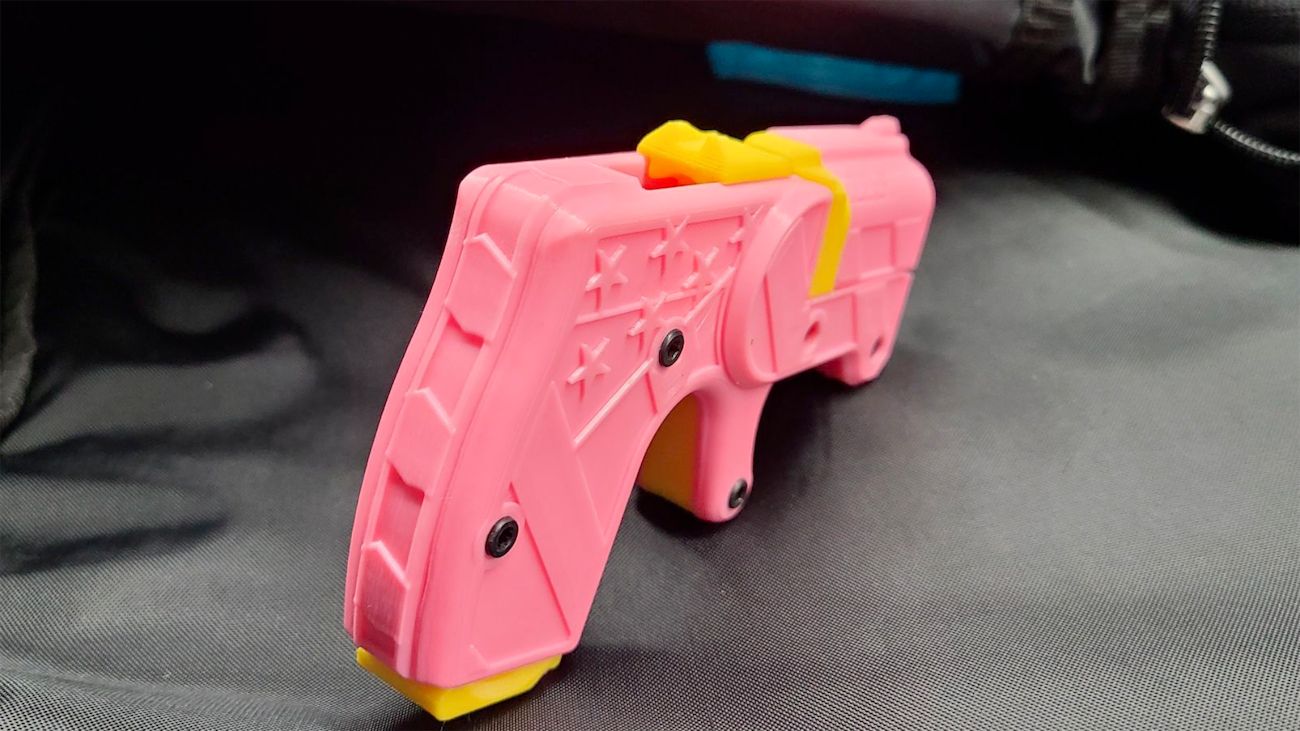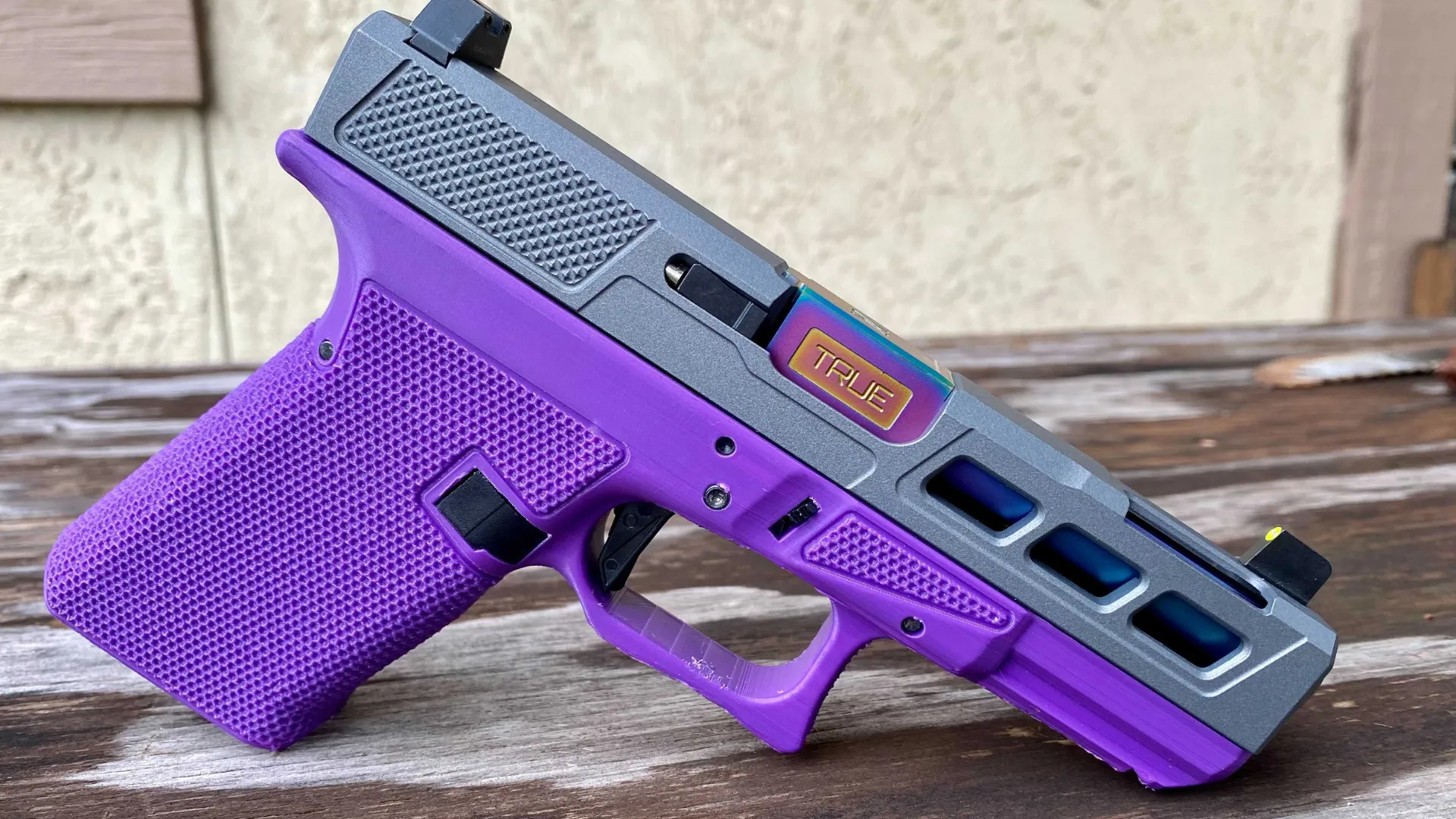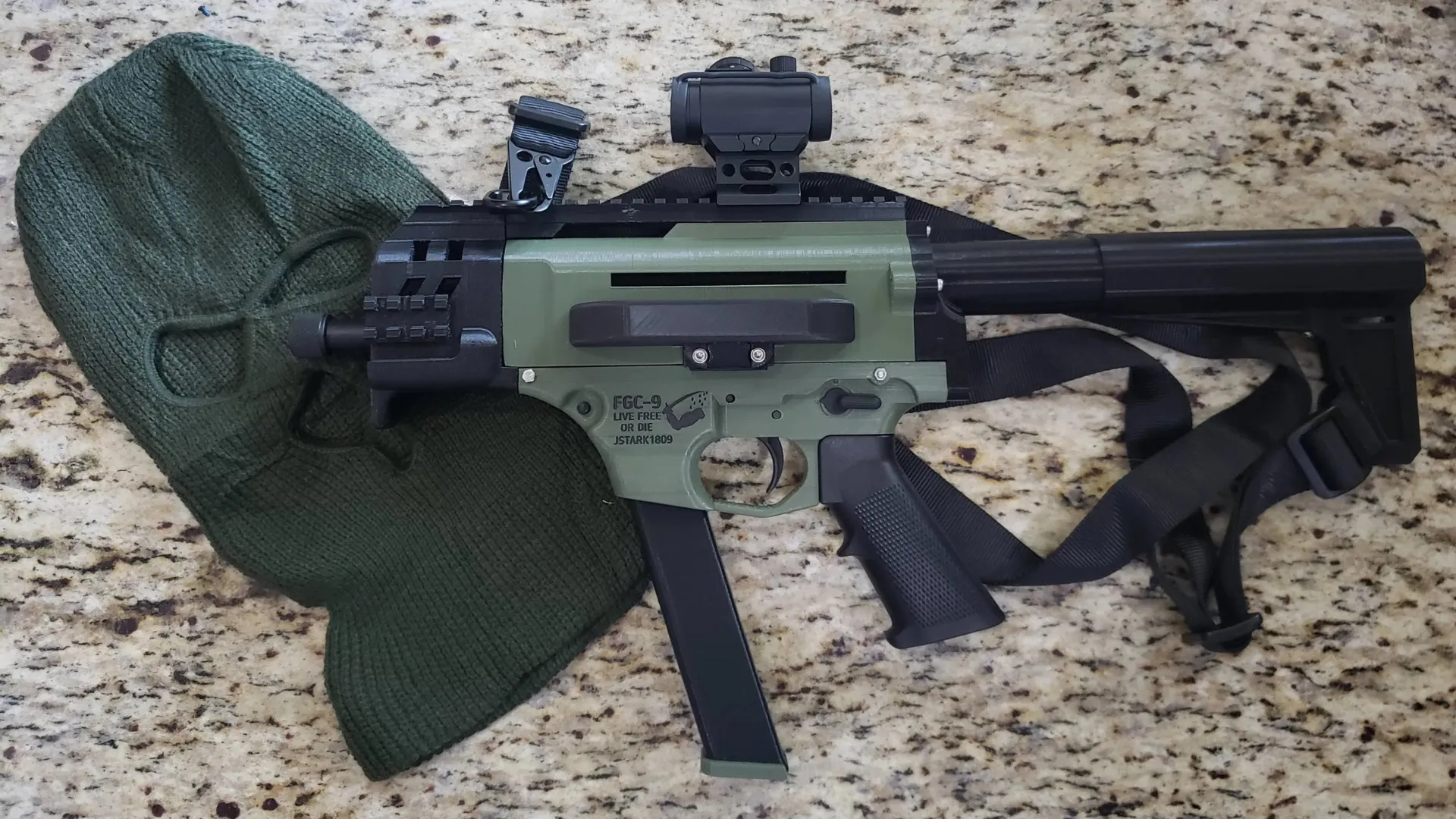Let’s kick off one of the more debated and nuanced topics in the gun industry. Nitride vs Stainless Steel barrels.
When it comes to choosing a barrel for an AR-15 or any other firearm, the decision often comes down to nitride or stainless steel barrels. Both types offer distinct advantages and disadvantages, depending on the shooter’s preferences and intended use of the firearm. Understanding the differences between the two can help individuals make an informed choice that suits their needs.

Nitride barrels are known for their affordability and relatively high durability, which makes them an attractive option for many gun enthusiasts. These barrels undergo a nitriding process that alters their metal structure, providing rust and wear resistance. On the other hand, stainless steel barrels are more expensive but have a reputation for lasting longer and providing better accuracy, although they may degrade rapidly with heavy use. However, they can be more susceptible to warping and metallurgical changes due to excessive heat.
Ultimately, the choice between a nitride and stainless steel barrel depends on a variety of factors, including budget, intended use, and personal preferences for accuracy and longevity. By considering these factors, one can make a decision that best meets their needs and expectations.
Nitride vs Stainless Steel Barrels
In this section, we will discuss the key differences between nitride and stainless steel barrels, focusing on their material properties and how they affect performance.

Nitride Barrels
A nitrided barrel undergoes a gas nitriding process in which the metal surface is exposed to nitrogen gas at high temperatures. This treatment creates a hard, wear-resistant layer on the surface of the metal, enhancing its overall durability. Nitride barrels are often more affordable due to their ease of production.
According to a source, nitrided barrels can achieve accuracy up to 1 MOA (minute of angle) at 100 yards with decent ammunition. The barrel life of a nitride barrel largely depends on how it is treated and maintained.
Stainless Steel Barrels
Stainless steel barrels offer better accuracy, but at the expense of lower overall barrel life. Generally, the average shooter does not shoot enough or accurately enough to benefit from the advantages of stainless steel. However, stainless steel barrels typically have more precise and uniform rifling, which contributes to their greater accuracy.
It is important to mention that although stainless steel barrels provide improved accuracy, their gilt-edged accuracy tends to degrade rapidly over time. In contrast, nitride barrels maintain their performance for a longer period, owing to their wear-resistant surface treatment. This includes threaded Glock barrels.
Nitride vs Stainless Steel Performance
Some of the biggest differentiates come into play with nitride vs stainless steel barrels when it comes to accuracy and performance.

Accuracy
Stainless steel barrels tend to offer better accuracy due to their precise and uniform rifling, making them a popular choice among shooters seeking precision.
However, nitride barrels are also highly accurate and are often used by competition bench rest shooters who prefer the combination of accuracy and durability that nitride-treated barrels provide.
Heat Resistance
Stainless steel is known to be more sensitive to heat, and excessive heat exposure can change the metallurgy and warp the barrel, affecting its accuracy over time.
On the other hand, nitride-treated barrels have a higher heat tolerance and are less likely to be impacted by heat-induced wear.
Wear Resistance
Nitride barrels have the advantage of being more wear-resistant compared to stainless steel barrels. This is due to the nitriding process, which alters the metal structure, providing a longer-lasting barrel that is less susceptible to rust and erosion.
Stainless steel barrels, though highly precise, may degrade faster in terms of accuracy, especially in high round count situations.
Corrosion Resistance
Both nitride and stainless steel barrels offer protection from corrosion. However, nitriding-treated barrels, especially those treated with Melonite or QPQ, have a distinct edge over stainless steel in terms of corrosion resistance. ‘
The nitriding process not only increases wear resistance.
Nitride vs Stainless Steel Maintenance
Cleaning
Regular cleaning is crucial for both nitride and stainless steel barrels to ensure their accuracy and longevity. Nitrided barrels are typically easier to clean due to the hard, wear-resistant layer that protects the barrel from wear and tear1. On the other hand, stainless steel barrels may require more attention during cleaning, as excessive heat or over-cleaning can negatively affect their performance.

When cleaning either type of barrel, it is essential to use quality cleaning tools and solvents specifically designed for firearm maintenance. The use of a bore brush, bore jag, and patches will help remove fouling, while a solvent specific to the barrel material can help break down stubborn deposits.
Lubrication
Lubrication is another vital aspect of maintaining both nitride and stainless steel barrels. Proper lubrication helps reduce friction and wear within the barrel, which can contribute to extended barrel life and improved accuracy.
For nitrided barrels, a thin layer of lubricant can be applied to the exterior surface to help protect against corrosion and rust. Stainless steel barrels, while more resistant to rust than standard steel, may still benefit from a light coating of lubricant on the exterior surface to protect against moisture and contaminants.
It is essential to choose a quality firearm-specific lubricant that is suitable for the barrel type. Over-lubrication should be avoided, as excess oil can attract dirt and debris, potentially causing malfunctions or other issues.
Nitride vs Stainless Steel Applications and Uses
Hunting
Hunters typically prefer durable and accurate barrels for their rifles. ‘
Stainless steel barrels are known for their accuracy, but they can be sensitive to heat and harsh conditions.
On the other hand, nitride barrels are more affordable and provide better durability. Depending on the hunter’s priorities, either barrel type can be suitable for the hunting application.
Target Shooting
Target shooters often prioritize accuracy and precision.
Stainless steel barrels generally provide better accuracy due to their manufacturing process and uniform rifling.
However, if a target shooter is looking for a more affordable and maintenance-friendly option, nitride barrels can still provide adequate accuracy for most shooters.
Tactical
In tactical applications, durability and reliability often take precedence over extreme accuracy.
Nitride barrels offer better resistance to harsh environmental conditions and can handle the demands of tactical shooting, making them a suitable option for this type of use.

While stainless steel barrels offer superior accuracy, their sensitivity to heat may not be ideal for high-volume shooting in tactical scenarios.
Military
In military use, the focus is typically on durability, reliability, and cost-effectiveness. ]
Nitride barrels present an affordable and durable option that still provides sufficient accuracy for most military applications.
Though stainless steel barrels can deliver better accuracy, they may not be as suitable for high-volume shooting and rugged environments often encountered in military settings.
Nitride vs Stainless Steel Barrel Price
When choosing a barrel for your AR-15, one aspect to consider is the price and availability of nitride and stainless steel barrels.
Nitride barrels tend to be more affordable and easier to manufacture, which often results in lower costs for the end-user. However, exceptions do exist, and some nitride barrels can be comparably priced to their stainless steel counterparts.
Stainless steel barrels are generally considered to provide better accuracy but can come at a higher price compared to nitride barrels. Many premium barrel manufacturers focus on producing stainless steel barrels due to their precision and potential for exceptional accuracy, which may contribute to higher costs.

As for availability, both types of barrels are commonly found in the market. Nitride barrels are more likely to be readily available due to their ease of production compared to stainless steel barrels. This abundance can contribute to a wider range of options for consumers, encompassing varying specifications and price points.
In summary, nitride barrels typically offer a more budget-friendly option while still providing good performance, while stainless steel barrels are often the choice for those seeking enhanced accuracy and are willing to invest more.
Ultimately, the decision between nitride and stainless steel barrels will depend on individual preferences and intended use.
Conclusion
In comparing nitride and stainless steel barrels, it is essential to consider their distinct characteristics and how they may affect performance. Nitride barrels undergo a process called gas nitriding, in which the metal surface is exposed to nitrogen gas at high temperatures, creating a hard and wear-resistant layer on the surface of the metal. This treatment often makes nitride barrels more durable and corrosion-resistant.
On the other hand, stainless steel barrels are generally known for their better accuracy due to the ease of machining the softer metal with fewer chatter marks. However, their longer lifespan can come at a cost. Custom-made barrels with true cut rifling, which are ideal for shooting competitions, may have a rapidly degrading gilt-edged accuracy.
When making a decision between the two types of barrels, the intended use, budget, and desired accuracy should be taken into consideration. Nitride barrels tend to be more affordable and may suit the needs of the average shooter who does not require extreme accuracy. For shooters looking to achieve precision in their shots, particularly in the context of competition, stainless steel barrels might be a more suitable choice.
Ultimately, both nitride and stainless steel barrels have their advantages and drawbacks.
What type of barrel do you prefer? Do your barrel preferences change based on the type of gun you are shooting i.e. an AR15 or a Glock?
Let us know in the comments down below!


